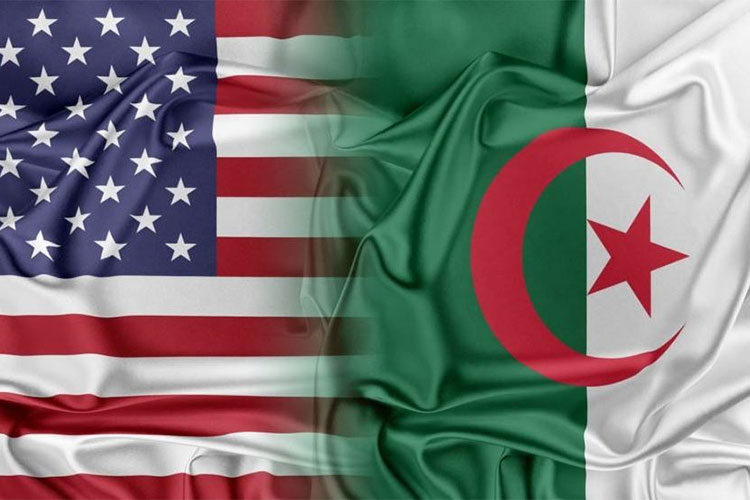Washington Made Great Effort To Prevent Its Relations With Algeria From Deteriorating

An American report confirmed that politicians in Washington have made great efforts to prevent “American-Algerian relations from deteriorating in the wake of the reversal of American policy on the issue of Western Sahara, during the period of former President Donald Trump.”
A study published by the “Arab Center Washington DC” on January 5, prepared by a professor of political economy at the American University in Washington, Gregory Avtandelian, entitled “The American-Algerian Relations Are Troubled, But Neither Party Wants their Collapse,” the reality of the Algerian-American relations, indicating the reasons for their decline and their strengths.
Gregory Avtandilian says about the reasons that greatly affected the relations of the two countries, “Relations between Washington and Algeria have remained at their lowest levels since the Trump administration recognized, in the last month of its term, Moroccan sovereignty over Western Sahara.” The study also links Algeria’s dissatisfaction with Washington because of the so-called “Abraham Accords,” he states, “The Trump administration viewed the so-called Abraham Accords, according to which some Arab countries, particularly the UAE and Bahrain, established formal diplomatic relations with Israel without any forward movement on the Palestinian issue, as a diplomatic victory,” and continues, “Morocco began a natural choice due to its long-term cooperation behind the scenes with Israel over many decades, but the price of Morocco’s accession to the Abraham Accords was for the United States to recognize its claim to sovereignty over the disputed lands in Western Sahara.
The report states, “The Algerian government was surprised by this coup in American policy, and quickly condemned it, as the then Prime Minister, Abdelaziz Djerad, considered it foreign maneuvers aimed at destabilizing Algeria, and stressed that there is now a desire by the Zionist entity to approach our borders.”
In this regard, the study describes Algeria as “a supporter of the Palestinian cause and views the Israeli efforts to establish official relations with Morocco as a security threat due to the possibility of Israeli-Moroccan military cooperation.”
Gregory Avtandelian’s study also confirms that Washington’s efforts to weaken Algeria’s relations with Russia did not bear fruit, and he cited the conduct of military maneuvers with Moscow, with Algeria continuing to acquire military equipment from Russia, and the letter sent by members of Congress to Minister Blinken to impose sanctions on Algeria under the pretext that it is an ally of Russia, did not find a way, and the study confirms, “The United States did not pressure Algeria to condemn Russia in the wake of its invasion of Ukraine.”
As for the energy file, the study says, “Since the reduction of Russian gas exports to the European continent due to the war in Ukraine, Algeria has been courted by many European governments in their search for additional gas supplies to compensate for the Russian shortage… Washington undoubtedly sees any increase in Algerian gas exports to Europe are a positive development.
The study confirms that America has developed close relations with Algeria to combat terrorism, as both countries see “al-Qaeda” and its affiliated groups as a “real threat”, and with the recent departure of French forces from some countries in the Sahel region, it is likely that the current cooperation between the United States and Algeria to combat Terrorism, as many Sahel countries bordering southern Algeria still face threats from extremist groups that both Washington and Algeria want to contain and eventually defeat.
The study referred to the visits that led senior American officials to Algeria, including a delegation headed by Brett McGurk, coordinator of the US National Security Council for the Middle East and North Africa, led by Deputy Assistant Secretary of Defense for African Affairs Chedi Blyden, to co-chair the joint military dialogue between the United States and Algeria and the aforementioned delegation. Chaired by Secretary of State Blinken, the latter stressed that “security and combating terrorism are the cornerstones of bilateral relations,” adding that “Algeria’s efforts are necessary to improve stability and security in the region.”







